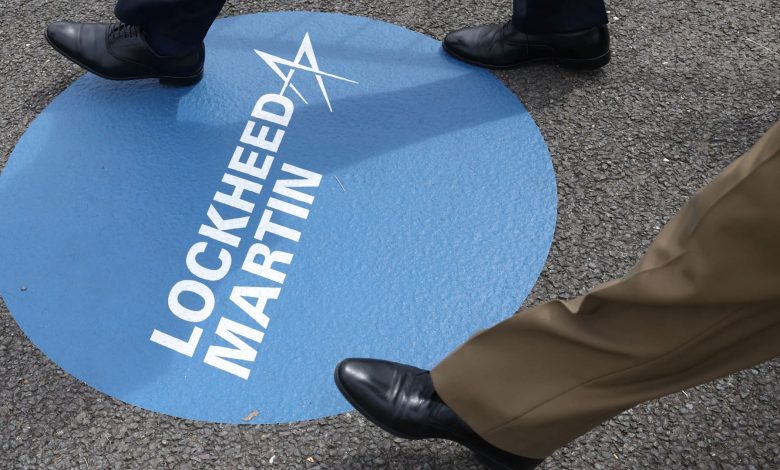Defense stocks may be caught between Trump’s trade war and military spending plans

The second Donald Trump administration began with some aggressive moves by the U.S. president toward other world powers, but the impact of those actions on American defense companies is still up in the air. Trump’s unorthodox approach to diplomacy and a looming budget fight on Capitol Hill means defense contractors have a high degree of uncertainty around what’s next. The iShares U.S. Aerospace & Defense ETF (ITA) rallied in the immediate aftermath of Trump’s victory, but the fund is little changed since Nov. 11. ITA 3M mountain Aerospace and defense stocks have not been able to build on their postelection rally. American defense contractors typically supply the U.S. armed forces, but they can also send their products to foreign militaries either through the U.S. military or directly with federal approval. Trump’s “America First” approach could theoretically lead to more spending for the U.S. military while lowering foreign military sales. “Right now, people are confused by a number of different crosscurrents. One of which could be a resolution somehow of the war in Ukraine — that has been anywhere from $25 [billion] to $50 billion in additional US spending on weapons to Ukraine,” said Roman Schweizer, a policy analyst at TD Cowen. U.S. government funding is also unclear, with a March 14 deadline for a potential shutdown getting closer. Some military projects could also fall under the scrutiny of the so-called Department of Government Efficiency, spearheaded by Elon Musk, who has been critical of Lockheed Martin ‘s F-35 fighter jet in the past. If the U.S. military budget does suffer some sort of shutdown-related disruption or targeted cuts, not all companies will be effected equally. Bank of America analyst Ronald Epstein highlighted Northrop Grumman in a Feb. 7 note as a relatively insulated company. “The U.S. administration change and DOGE has increased uncertainty across the market on government spending, program certainty, and the nature of government contracting,” Epstein said. “We see NOC insulated from the noise due to the company’s position on some of the most critical defense programs regarding national security, power projection, and next generation technologies.” Missile defense Of course, there could be a long-term spending benefits for the defense companies under a Republican administration. On Jan. 27, Trump issued an executive order titled ” The Iron Dome For America ” to explore upgrades to the U.S. missile defense system. Republican Senators Dan Sullivan of Alaska and Kevin Cramer of North Dakota announced a bill to that effect on Thursday, calling for more than $18 billion in spending. While the exact shape of that program remains to be seen, it could be a boost for defense stocks. “I don’t think it’s necessarily going to be a standalone bill to fund the Iron Dome for America program. I think that’s going to sort of come together over a series of years, and it really just depends on how expansive that program is,” TD’s Schweizer said. William Blair analyst Louie DiPalma said in a Jan. 28 note to clients that any Iron Dome plan would likely benefit leading missile defense names, such as Lockheed Martin and RTX . DiPalma also said that Boeing ‘s Millennium Space business and AeroVironment’ s BlueHalo could be in play for contracts. Trade war concerns Trump’s threatened tariffs on allies like Canada and Europe could be another wrinkle for defense companies, even if their products are unaffected. “Trade wars and tariffs may have a negative impact on a country’s appetite to buy US weapons system,” said TD’s Schweizer. The scale and technology of U.S. weapons systems does make it hard for countries to shop elsewhere, outside of small contracts here and there, said Tony Bancroft, a portfolio manager at Gabelli. “When you buy a US weapons system, you get the logistics chain with it. Other countries don’t have the kind of volumes that we deal in,” Bancroft said. Foreign military sales also tend to be higher margin deals for defense contractors than domestic sales, he added. Top defense holdings in the Gabelli Commercial Aerospace and Defense ETF (GCAD) as of Dec. 31 included L3Harris Technologies and Spirit AeroSystems .



